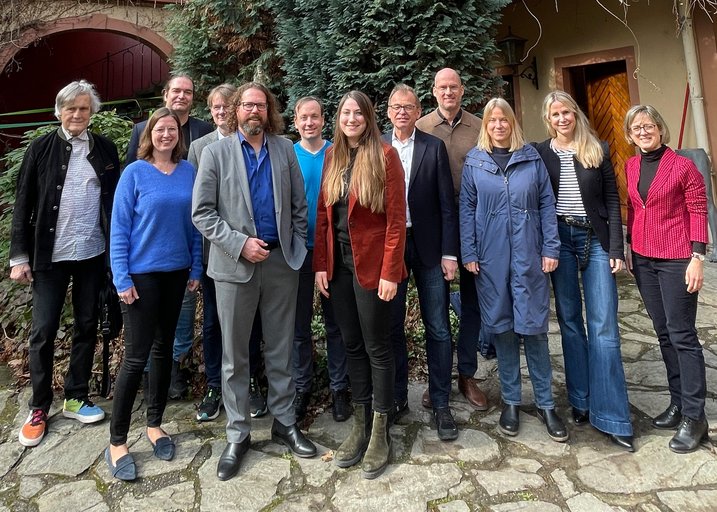
Prof. Dr. Konrad Wolf and Prof. Dr. Susanne Weissman with the documents (photo: Gregor Schläger)
Prof. Dr. Susanne Weissman, President of Mainz University of Applied Sciences, signed the Zielvereinbarung zur Umsetzung der Hochschulinitiative für gutes Studium und gute Lehre in Rheinland-Pfalz (Agreement on Objectives for the Implementation of the University Initiative for Good Academic Studies and Teaching in Rhineland-Palatinate) along with Minister of Science, Prof. Dr. Konrad Wolf, on October 9, 2020. With the Zukunftsvertrag Studium und Lehre stärken (Contract for the Future - in Support of Studies and Teaching), the federal and state governments will end the current Higher Education Pact with effect from 2021. This means that the state of Rhineland-Palatinate will provide universities with 140 million Euro for studies and teaching in the long term. This will enable 779 positions at the state's universities to be released from fixed-term contracts. From 2021 onwards, Mainz University of Applied Sciences will receive around 6.4 million Euro and 53 permanent jobs from the University Initiative for Good Academic Studies and Teaching.
"The funds from the higher education initiative provide us with a reliable structure to consistently drive forward the strategic development of our profile and to create sustainable structures for building up the quality of studies and teaching," said Prof. Dr. Susanne Weissman. "This includes the expansion of our network of collaborations with partners from the business, science and cultural sectors, as well as a future-oriented design of our degree program portfolio with regard to the characteristics of digitization and technological change, transdisciplinarity, internationalization and practice transfer, which are all part of our profile. It is important to us to convey to graduates in the respective disciplines a professional ethical and social attitude to issues related to digitization and technological change, and to anchor this in the degree programs.
The specific measures to be taken will include the development and expansion of digital teaching and learning formats, making the range of classes offered more flexible by using hybrid formats (blended learning), the expansion of dual master's degree programs and dual doctorates, and the introduction of an integrated campus management system. By launching the dual degree program Bachelor's in Applied Informatics (Civil Service) in the 2020/21 winter semester, Mainz University of Applied Sciences now has a unique selling proposition in Rhineland-Palatinate and in the Rhine-Main-Neckar region, reflecting the requirements of the future job market. Furthermore, Mainz University of Applied Sciences was the first university in Germany to introduce the OpenPlus system in its library, which enables the use of the library on campus whenever the university building is open. To provide lecturers with systematic didactic advanced training, Mainz University of Applied Sciences will set up a Learning Lab, which will be financed by the Innovation Fund of the Universities of Applied Sciences with 100,000 Euro annually.
"By signing the agreements of objectives, we are implementing one of the most important science policy measures of recent decades. This improves the conditions for studying and creates good working conditions for many employees at Rhineland-Palatinate's universities," stated Minister Wolf.



